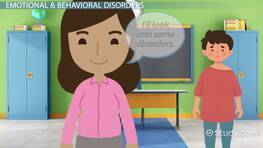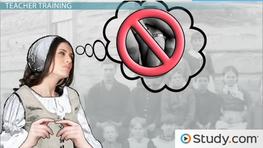Explore Pedagogy & Teaching Strategies
Pedagogy Courses
Study.com's library of online courses about pedagogy and teaching strategies cover different teaching styles to help instructors effectively manage their classrooms.
Explore our full library of pedagogy & teaching strategies courses:
- Using Differentiated Instruction in the Classroom
- Curriculum Development for Teachers
- Effective Instructional Strategies for Teachers
- How to Motivate Students in the Classroom
- Teaching Students with ADHD
- Teaching Gifted Students
- Teaching Students with Autism Spectrum Disorders
- See all pedagogy & teaching strategies courses
Education 103: Classroom Management
Education 106: Introduction to Early Childhood Education
Education 210: Technology in the Classroom
Education 101: Foundations of Education
Understanding & Applying STEM Education in the Classroom
Explore our full library of pedagogy & teaching strategies courses:
What is Pedagogy?
Pedagogy can be defined in simple terms as the theory, practice, or act of teaching or instructing. It also involves the methods and approaches the instructors use for creating fun and engaging lesson plans with the goal of enhancing learning opportunities for their students. These methods and approaches include lesson organization and of instructional media.
Pedagogy is heavily influenced by educational psychology. Instructing someone involves more than simply preparing a lesson and presenting it to a class of students. Instructors must be able to read every student and understand their abilities as well as their limitations or weaknesses. Then, the instructors must have a goal in mind which they will hope to achieve with their lessons based on the students' background. Students' background can be accessed by asking them questions to find out their prior knowledge.
With this idea in mind, it is useful to mention that there is no single pedagogy. In fact, there are multiple pedagogies since the method of teaching depends on the instructor and its students.
A teaching pedagogy can be described as a form of art or even a science. For example, alternating tone of voice and pausing to emphasize important points are pedagogies. Repetition is also a useful and common pedagogy used in the classroom as it has been proven that students learn best when important concepts are repeated. Examples of pedagogies include rewards (such as a class party or receiving good grades) and punishments (can be getting a bad grade or detention).
The following are three common learning strategies:
- Mnemonic
- Structural
- Generative
Mnemonic learning strategies include any devises that help students memorize new concepts. For example, a song, pattern of letters, ideas, or associations may help students memorize. In structural learning strategies, students have to combine the main concepts into one structure like conceptual maps, flow charts, or outlines. Lastly, taking notes, underlining, and highlighting all are common generative learning strategies which promotes the incorporation of new knowledge.





Teaching Strategies & Pedagogy for Today's Classroom
 |
In the modern classroom, teachers need to be adaptable and light on their feet in order to best meet the needs of their students. To do so, it's best to remain up to date on teaching strategies to ensure that all learners are able to be as successful as possible when inside the classroom. Here are some great resources to help get and keep you up to date on successful strategies in and out of the classroom:
Teaching Strategies Proven to be Effective in the Classroom:
Every teacher has their own unique strategy for leading their students through coursework and ensuring their understanding of the material. While each teacher has their own unique strategy, no two students and no two classrooms are alike - and to be as effective an instructor as possible it's important to adapt to best fit the needs of the learners in your classroom. Remaining up to date on learning strategies can be incredibly beneficial for both the students and the teacher alike, check out some strategies that have proven to be effective:
- Differentiated Instruction: In order to best meet the needs of all learners within a classroom, differentiated instruction provides students an opportunity to learn a single lesson through a variety of different activities and ways of presenting information. This strategy can be particularly effective for English language learners or when teaching in an inclusive classroom including students with learning disabilities.
- Culturally Responsive Teaching: The integration of the cultures of your students into the classroom can be incredibly beneficial for establishing connection to the course material and for presenting information in a way that is easily understood by students. Culturally responsive teaching can be particularly beneficial when teaching subjects like history (link to pillar?) & language to allow for students to consider events through various perspectives and cultural lenses. One of the greatest benefits of this strategy though, is that it allows for all students to feel understood and accepted - and provides an opportunity for students & teachers alike to learn from each other's life experiences.
- Project-Based Learning: Ensuring that your students are actively engaging in the learning process and course material being taught is essential to student success. Project-Based Learning goes beyond submitting projects in a classroom environment, and instead focuses on long-term projects that may have more real-world application. Longer-term projects with real-world application can also be used as a professional development opportunity as well, exposing students to real-world applications that they would otherwise not have visibility into.
- Gamification: One of the most effective ways to get students to engage in the course material is to gamify the material and turn a learning experience or objective into a game. Turning a vocabulary lesson into a game of charades or utilizing digital tools like Kahoot! can bring students together to not only learn the material that's being taught - but to help make learning more engaging and fun!